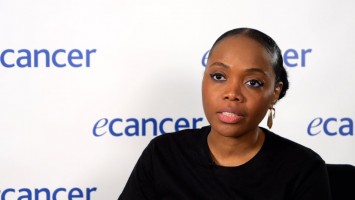Gender inequity in ovarian cancer research in resource limited settings
Dr Khalid El Bairi - Mohamed First University, Oujda, Morocco
Could you tell us about the background of your research?
Several years ago, when I started working in ovarian cancer which, by the way, was highly neglected in Morocco - there was no research about it, I discovered that women were less presented as senior authors in the publications I analysed when I was looking for the rationale to build my project. Unfortunately in a male-dominated environment like North Africa, women have less chances to publish original research, meta-research, as principal investigators and also as senior authors. So we mapped gender inequity issues in all publications of North Africa during the last five years, including articles from Morocco, Tunisia, Algeria, Libya, Egypt and Sudan. So it was a bibliometric analysis of more than 7,000 papers which provided us a global overview of what is happening about the representativeness of women in the global oncology of that region.
So there are some very interesting results to share with the global community, particularly at AORTIC, because it is focussing more on mentorship, on issues in research. So I was very happy to deliver this kind of presentation for our local participants from all the regions of Africa.
The first result that I would like to share with you is that there is progress in North Africa. Now we are seeing a lot of women publishing original research as first position authors, which is great, as compared to other regions of the world. This means that women are more now qualified to be independent and publish research as first authors.
Some other issues still exist, unfortunately, as barriers in that region. We are facing the challenge of having more men as principal investigators and, of course, there are also other barriers facing women to making more progress like access to funding. Men are still having more funding than women, according to our results. Men have done more international collaborations as compared to women. One of the other issues discovered in this analysis is that during the COVID pandemic women faced more challenges to publish more research during that critical time.
So the perspectives from this is that during the last five years we can say that women are getting more great positions as senior authors. We need to support them more so they can be independent and run research as principal investigators, as research directors. Men like me can do great for this, to tackle this issue by providing support. During the conference we will have tomorrow I am going to share a mentorship programme we did in our institution where we provided supervision for women oncologists, female oncologists, in our department to be editors in international journals. So we shared our experience with them and now we have a first woman as an associated editor for a book and the book will appear soon. So it was a mentorship programme and the final destination is to give this expertise from us, because we were dominant, unfortunately, in that environment, to these females so they can also break the gap and be principal investigators, edit journals, be editors in books, publish special issues and maybe run teams to conduct research on aggressive cancers in our region like ovarian cancer.
Is there anything else you would like to add?
My final thought for everyone in Africa, first I am very proud of AORTIC. It’s the first meeting I am attending right now that focusses on local issues. I’ve participated in a lot of events of international organisations but unfortunately Africa was not one of their targets. Global oncology issues, access to drugs and everything was not really a focus of these organisations. But AORTIC this year focussed really on the issues we are facing in Africa by providing mentorship programmes, education, training, international collaborations and that is really something great. As a man doing research on ovarian cancer, I believe that I can do great for women so they can have equitable chances to have the same great career we had as men in Morocco.








